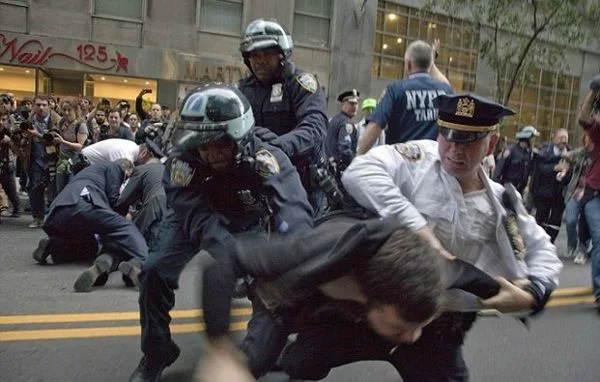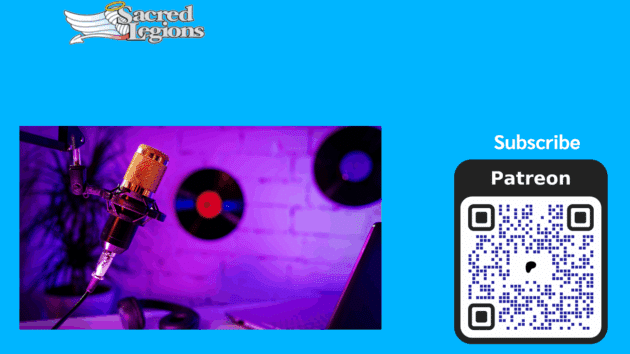Shonto Pete. Otto Zehm. Scott Creach. It’s very likely these names mean nothing to you. Pete, Zehm, and Creach were all victims of police violence in Spokane, Washington in the last 10 years.
Shonto Pete was shot in the back of the head by an off-duty police officer. Pete survived and the officer was found not guilty.
Otto Zehm, a developmentally disabled man, was beaten to death at a convenience store by the Spokane police. Seven officers were involved but only one was found guilty. One of the non-guilty officers shot and killed a homeless man a year later. He was again found not guilty.
Scott Creach, a pastor and local businessman, was shot and killed by a Spokane county sheriff on the property of his nursery business. That officer was found not guilty and is still on the force.
The stories of Shonto Pete, Otto Zehm, and Scott Creach are stories I know. I live in Spokane. The abuse and termination of their lives by official fiat wasn’t deemed newsworthy by the national media.
Nationally speaking however, the story of Michael Brown may ring a bell. Two years ago Brown, an 18 year-old, unarmed black man, was shot by a white police officer, Darren Wilson, in Ferguson, Missouri. That incident sparked massive protests demanding justice (the officer was eventually found not guilty) and a whole lot of promises around police accountability. It also propelled the Black Lives Matter movement into world view.
After the media spectacle created around Michael Brown’s unavenged murder, the cameras turned their gaze to Tamir Rice in Cleveland, Walter Scott in North Charleston and Freddie Gray in Baltimore. There have been countless victims of state-sanctioned and protected police violence pre and post Michael Brown, with the vast majority of those human stories never captivating the cable news networks’ attention or making it to the front page of national newspapers – let alone local ones. The media is fickle about what it considers sensational enough to bookend its ubiquitous commercial advertising.
Cop Warfare Against the Poor
Spottiness of coverage doesn’t diminish the ongoing gang warfare of the cops against the poor. Shonto Pete is Native American. Otto Zehm and Scott Creach were white. The city of Spokane and the surrounding county is over 90% white. These facts and the demographics of greater Spokane don’t alter the hard and cruel fact that people of color and the developmentally disabled are far more often the victims of police brutality and police killings than whites. And though the racial component reveals a great deal about the distribution of power and social advantage under the ongoing moral apartheid of the U.S., what we are facing in Spokane and across the country is more broadly a problem of power.
The war of the cops against the poor is a systemic problem that is bolstered by racism. It’s even camouflaged by the progressive media as only a matter of racism. But that allows the power behind the badge – (mostly white) wealthy privilege – to skate blamelessly away from public scrutiny while the official violence proceeds in the manner it was programmed to do, regardless of the racial heritage of the underclass victims. The police state was instituted largely to protect and serve the powerful elite, not the people. All the media hand-wringing and commercial punditry about “the problem” is disingenuous because there’s no intention to actually change anything. It’s all about taking time to “notice,” as though stooping to sniff an unusual flower in our political garden.
An Unholy Alliance
There is an unholy alliance at the service of the power elite: state-sanctioned police violence against the underclass combined with a court system where the murderers and thugs in uniform elude justice. This alliance leaves its victims and our communities with no legal and peaceful means of remedy.
Legalized control of society’s underprivileged through violence is not an invention of the last few years. It has deep roots. Today, it is institutionalized in a system modeled on military occupation of combatant territory. Police forces across the country have been an operationalized instrument of the system for 150 years now, originally formed to insulate and protect the ruling corporate class from the rabble – immigrants and workers. We see and experience police violence against lone individuals targeted because of the color of their skin as well as with crowds of protesters railing against government or corporate abuse.
Law and Order
This abuse of power by the police-state is condoned, protected, and goes without punishment in order to maintain the power dynamic ironically referred to as “law and order.” It is a fear-based system of mass manipulation used to quell uprisings, dissent, and outcries for justice and democracy by people of all colors against the oppressive policies of the small minority that we sometimes call “the haves.”
This standing threat of sanctioned uniformed violence against random victims is programmed to keep institutional fear alive within our communities from generation to generation. Very little has changed regarding justice, human rights, and ultimately who holds power, despite generations of efforts to make a difference. The message from the top, trickling down through the batons and mace spray and bullets, is that all is well and the cops are just doing their jobs, so long as we aren’t coming after the perpetrators of this tyranny.
The Illusion of Change: Spokane
In Spokane, there were others victimized by the police and provided a media spotlight, spanning the same decade as Pete, Zehm, and Creach. That sparked an outcry from the community. One outcome was an investigation conducted by the Spokane police of their own behavior, looking into nearly 500 instances of excessive force by police officers over a four year period. Their findings? Police officers were in the wrong a whopping zero times.
Combine the police non-investigation of themselves with the lack of convictions of officers by the courts, another report claiming officer actions are not driven by racists tendencies, a revolving door of police chiefs, zero enforcement powers of the ombudsman, and scandals involving the police department and the mayor’s office, it’s not surprising that a recent headline in the paper was, “Spokane police oversight still a concern in new round of law enforcement bargaining.”
It has been ten years since Otto Zehm had the life beaten out of him by uniformed men paid to do it. And despite the community outcry for change, neither the power dynamic, the behavior and culture of the police, or the mechanisms to hold them accountable when they’ve clearly committed a “legal” and moral crime, has changed in Spokane. The investigations, imposed officer trainings, several police department leadership shake ups, and a largely ceremonial ombudsman program has produced only the illusion of change. What remains is this uneasy feeling in the community, like a volcano due to erupt. Spokane waits for that next instance of police violence to shock our consciences.
The Illusion of Change: The Nation
The police-state, in service of the corporate-state, reacts predictably when events like the police murders of Michael Brown or Otto Zehm or Tamir Rice occur. Investigations will be conducted, blue ribbon panels will be created, task forces made up of powerful people with credentials will be appointed, the public will be invited to participate. Pronouncements are made, money is spent, experts called in, personnel shuffled, and officers trained. Yet in the end the system is unshaken. It’s business as usual. No real change emerges.
When tragedies given higher profiles happen, the system likes to “marshal resources” (i.e. make a show of concern) while making a show of compassion for the families, and making a commitment to solve neighborhood issues. But these rituals, once performed, come to a close without anyone’s prayers being answered.
It is a rare moment when an officer or officers are found guilty of actions that we would all clearly deem to be criminal, unjust, and immoral. But there is always hope that justice can be had from the courts, and when that next tragedy strikes, we expect that it is at least possible that the court will be compelled to rule against the bad cop. But why do we anticipate the judiciary will behave differently this time? The laws they are working from are the same set of laws that place more value on protecting property and commercial interests over fundamental human rights.
Without a doubt the predictability of injustice is frustrating for communities seeking police justice. But one thing we can’t be is disappointed. Disappointment only happens because there is an expectation, a knowing that a particular outcome is pending, but in the end the opposite happens. By now we must be over our callow belief in the justice of “the system.”
Rethinking our Activism
The system, as it is currently constructed, will surely not disappoint itself for our want of justice, accountability, safety, livability, and greater democracy. Perhaps what we should find disappointing is our own inaction to change the system.
Nearly all the activating, influencing, and lobbying we do lands on the door steps of the system itself. We keep asking, sometimes begging, the system that holds power over us to change its behavior.
Whether it’s our police departments, our elected officials, or our courts, we have operated on the premise that as long as we have the facts, the truth is on our side. We believe this alone will lead to justice, and the abuses of power will stop. We believe that our friends, family, and fellow citizens will stop dying or being abused and belittled at the hands of those supposedly tasked with protecting and serving us.
Groups of people in different communities, in different states, lobby for toothless police ombudsman programs, ask police departments to do more to police themselves, and pressure politicians to put the clamps on the toxic behaviors of police departments.
We have convinced ourselves that it’s a waste of time to ask for more than what we think the system will give us.
We have convinced ourselves that small, incremental change is how we will reform the system.
We have convinced ourselves that reforming the system is all that is needed, as if the system somehow lost its way, turned on us at some point in the past, but can be put back on the right path.
We have yet to ask ourselves what it is that we really want and then take it, because we have a right to it.
We have yet to say reform is not an option; that the system needs to be turned on its head.
We have yet to say the table is ours and we, the people, will say who gets a seat.
We’ve done our activism with earnestness, blood, sweat, and tears, all along carrying the memories of loved ones lost, the truth, and a high sense of justice on our side. But this tragic dance has been going on for decades now with no real success.
Many people like to sign off on their emails with the words of Frederick Douglass that “power concedes nothing without a demand.” Yet we never dream of holding real power and then fighting for that power.
We seem to have forgotten that oppressive systems must be broken, not kowtowed to.
When will we face the fact that government itself, which includes police departments, are highly toxic institutions? When will we recognize that the likelihood of systemic change – including creating police accountability to the communities they are supposed to serve – is zero if we keep expecting the system itself to change its ways?
Once we recognize this, we also recognize that the force to secure the justice we seek must come from us. We surely can leverage the existing system, but ultimately we should be using the existing system to break itself in order to achieve the necessary change. The force of change must come from the people in the places where they live. It must come from the people who are abused by power. And it must come from those who benefit from that power and recognize it as unjust.
Building a What-We-Want Activist Platform
Achieving deep, systemic change requires ditching organizing built on the near-sighted, ineffective, “what we can get” platform. It requires building our organizing on a foundation of rights, focused on justice and empowered by community. We need to build a “what we want” platform.
To do this means being prepared to both challenge the existing system at its deepest core and to ignore the barriers that have been deliberately constructed to deny us what should rightfully be in the hands of the people.
Whether that is tossing aside justice-eluding police bargaining laws, restrictive state preemption, oppressive federal laws, or the hammer of corporate “rights,” we need to recognize that those laws and rules are just words on paper, and that we can no longer obey them as legitimate, because they intentionally perpetuate injustice.
We then need to put forward, adopt, enforce, and defend a rule of law – our words on paper – built on the rights of the community, the right to live free of fear, and to be afforded true health, welfare, and safety. That may mean demanding not just residents’ input when there are instances of excessive police force, but residents’ control over the treatment of those instances of official abuse. And that may mean completely transforming police departments or even deciding whether they are needed at all.
That may mean proposing an entirely different kind of justice system, from top to bottom.
And that may mean adopting laws that say if you are acting in defense of the community’s rights, rights that government and the courts have failed to uphold, then you should not be arrested or prosecuted for any crime.
Dismantling the Police State
In the end, the police state needs to be dismantled, because it is a system that places greater value on things vs. people. We must believe it is possible to live without armed enforcers of the status quo among us. We must be inspired by hope and driven by determination, rather than hiding in fear. Then perhaps a new systemic structure, a new kind of government, can emerge that protects and serves the people of the community from abuse by the corporate-state and its economic co-conspirators and enforcement officers.
As the labor leader and champion of civil rights Cesar Chavez said, “You cannot oppress the people who are not afraid anymore.”
We live under a system of law and governance that elevates corporations and profits over people and nature. This will not change until we build a broad people’s movement to establish rights for people and nature over the systems that control them.
CELDF is spearheading that movement, working to establish rights for humans and nature, and elevating them above oppressive systemic structures. Help us advance those rights in 2017 – donate today.



